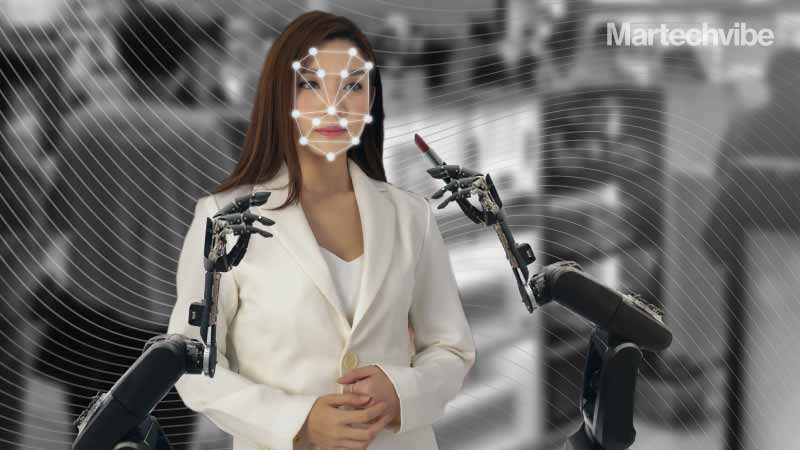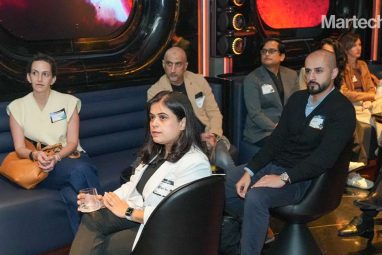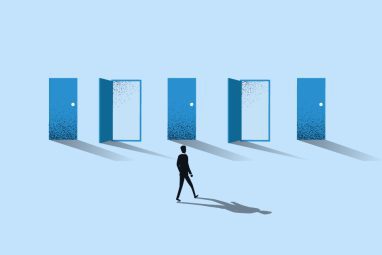Has Tech Changed the Beauty Game?
Global beauty companies L’Oreal, Sephora, and Estée Lauder are adopting artificial intelligence and augmented reality technologies to give consumers a more personalised and customised experience. In-store shopping was considered for up to 85 per cent of beauty-product purchases before the pandemic, resulting in an up to 30 per cent loss in revenue when lockdowns began, […]
Topics

Global beauty companies L’Oreal, Sephora, and Estée Lauder are adopting artificial intelligence and augmented reality technologies to give consumers a more personalised and customised experience.
In-store shopping was considered for up to 85 per cent of beauty-product purchases before the pandemic, resulting in an up to 30 per cent loss in revenue when lockdowns began, as per McKinsey. Whereas, some beauty-product brands and retailers with inventory and shipment operations ready to scale up are reporting eCommerce sales twice as high as their pre-COVID-19 levels. For instance, Sephora’s US online sales are reportedly up 30 per cent versus 2019, as were Amazon’s beauty-product sales for the four-week period ending April 11.
The demand for beauty products has shifted, not decreased. According to Statista, the beauty and personal care market is expected to grow annually by 3.12 per cent between 2021-2026. Consumers have become more friendly with online shopping, and beauty brands are trending towards the online B2C format. The recent global trend among beauty brands is providing online personalised beauty options.
Best known for the popular consumer-facing virtual make-up try-on app YouCam, beauty technology service provider Perfect Corp uses its trademark face-tracking technology to support businesses and consumers by providing AR beauty apps. Brands like L’Oréal, Estée Lauder have integrated their technology to provide augmented reality try-on mirrors at home and in stores to compare sample products and foundation shares virtually.
Here are five case studies of global top beauty brands disrupting the industry, using cutting-edge technologies.
ModiFace Skin AI
Developed by dermatologists, ModiFace Skin AI measures the actual skin state and monitors any possible skin changes in the live video tool it uses. This technology can not only identify but can also evaluate tiny skin changes, like rosacea, uneven skin, dryness, discolouration and dark spots. It depicts the before and after differences/transformation after the use of any beauty product. This technology follows a decade of research from Stanford University and is used by some of the leading beauty industry players, which includes Allergan, L’Oreal, Unilever, Yves Rocher, and Sephora.
L’Oréal
L’Oréal is well acquainted with tech advances in the beauty industry. It’s facial-mapping app Makeup Genius can turn any smartphone and tablet into virtual makeup mirrors, allowing you to try on products in real-time. Borrowing its technology from the gaming industry, Makeup Genius allows you to scan an ad or image to detect a colour match and try on specific products.
To maximise on digital beauty, L’Oréal partnered with Perfect Corp to integrate its make-up collections across worldwide brands into YouCam Makeup, an augmented reality app.
L’Oréal acknowledges the mixture of customer service and artificial intelligence in securing engagement and sales.
Charlotte Tilbury
Choice paralysis, lack of try-before-you-buy incentives and hygiene concerns are the key pain points when purchasing beauty products in-store. Even applying and removing make-up requires time and expertise. Charlotte Tilbury decided to eliminate the whole hassle with its augmented reality “magic mirror” that allows users to instantly try on 10 of Charlotte Tilbury’s make-up looks virtually. The aim of using the “magic mirror” is to increase the dwell time and the number of interactions in the store along with diving makeup try-on logistics. Within the span of 40 seconds, users can compare their looks parallelly, with day and night filters and email their favourite looks to themselves.
Shiseido’s ‘Optune’
Skin conditions can vary each day due to weather and air pollution, as well as internal factors including sleep, stress/mood, and menstrual cycle. To give a personalised skincare experience, Shiseido came up with ‘Optune’, a personalised app that is modified and adapted as per the skin environment of each individual. Their algorithms have the ability to choose the best conditions of the skin, including the tones for a moisturised condition for every person. Optune is a digital technology with cutting-edge beauty research and skin science to optimise the personalised skincare experience.
It comprises two parts: Optune App: It allows users to learn their skin conditions such as the amount of moisture, skin texture, oil, pores just by taking a picture of the skin with a smartphone camera. This skin condition data is stored together with skincare records. This new version has added the function of sensing biological rhythm disruption. When users set the sleep measurement function provided, the app detects movement during sleep, identifies the disruption of the users’ biological rhythm caused by such movement, and reflects results in the skincare solution provided the next day.
Optune Shot: Selected based on skin conditions input by users when they apply for the service, and the cartridges are delivered to the users’ homes and the dedicated machine. Simply putting their hand in the dispenser, users can enjoy simple two-step skincare selected from 80,000 patterns that fit current conditions. The algorithm and Optune Shot have been developed for all skincare patterns based on knowledge derived from the research and development of cosmetics products and beauty care.
Estée Lauder
The first-ever brand to conquer voice-enabled beauty experiences launched by the Google Assistant was Estée Lauder. It entered the ring with its launch of the Nighttime Expert app in 2017 to promote a chat experience for its consumers and provide a personalised nighttime skincare routine. All a user has to do is, say “OK Google, Can I Talk to Estée Lauder Nighttime Expert?” and through a series of questions and answers sessions and the app will recommend a personalised skincare routine. They also offer some skincare application techniques as a free trial.
Takeaway
In recent years, beauty brands have been leveraging technology but the global pandemic and the resulting digital transformation has helped to shape the well-architected digital experience for beauty brands to offer an equivalent or even a more personalised transaction than an in-person engagement. And this trend is here to stay.
If you liked reading this, you might like our other stories
5 Technologies Driving the Beauty Industry’s Digital Revolution
Is RFID Reinventing Retail?









































































































